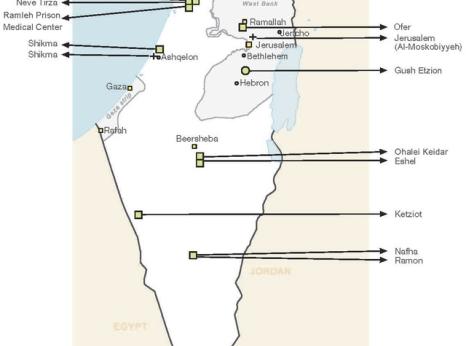IOPT: Health Fears For Tortured Palestinian Detainee

Solitary confinement of more than 15 days amounts to a violation of the absolute prohibition on torture and other cruel, inhuman or degrading treatment or punishment. Ahmad Manasra’s mental ill-health aggravated by his treatment in detention is a pressing human rights concern and a medical emergency, and yet the Israel Prison Service persists in keeping him in solitary confinement. Ahmad Manasra was diagnosed by an independent Israeli clinical psychologist affiliated with ‘Physicians for Human Rights – Israel’ (PHRI) on 24 October 2021 with serious psychiatric conditions – schizophrenia, psychosis, and severe depression – that he developed since his incarceration. Approximately ten days after that diagnosis, the Israel Prison Service placed him in solitary confinement, which continues until today. On 13 April 2022, PHRI published their psychiatrists’ assessment that Ahmad’s continued imprisonment would lead to “irreparable damage”. Nevertheless, the Israel Prison Service renewed Ahmad Manasra’s solitary confinement for a further six months on 17 April 2022. On 13 June 2022, the prison doctor rushed Ahmad Manasra to the prison hospital following life-threatening deterioration in his mental health. He was discharged from prison hospital on 19 July 2022 and put straight back in solitary confinement.
Ahmad Manasra was 13 years old when he was arrested in 2015 in relation to the stabbing and injury of two people in Pisgat Zeev, which is below the minimum age of criminal responsibility recommended by the Convention on the Rights of the Child (General Comment No. 24). At the time, Israel’s Youth Law did not allow imprisonment under the age of 14, and the court proceedings were delayed until he had reached 14 years of age. A month after Ahmad Manasra’s arrest in November 2015, footage of his interrogation was made public. The 10-minute video, reviewed by Amnesty International, shows him being interrogated by three men, without the presence of his lawyer or parent, in violation of international standards. He appears increasingly distressed as his interrogators continue to shout at him, directing insults and threats. This video is evidence of several violations of Ahmad Manasra’s rights as a child and as a detainee. To Amnesty International’s knowledge, there have been no investigations into the conduct of police and security officers. Despite being found by the courts not to have participated in the stabbings, he was convicted of attempted murder in 2016 and sentenced to 12 years in prison, which the Supreme Court reduced to nine and a half years in August 2017.
The treatment of Ahmad Manasra fits a wider pattern of discrimination against Palestinian children in the criminal justice system. According to Amnesty International’s records, some 170 Palestinian prisoners held by Israel as of June 2022 were arrested when they were children, and twelve children are held as administrative detainees. In many of the cases, children were denied fair trials in line with international standards and furthermore were discriminated against on racial grounds as Palestinians. Evidence collected by Amnesty International, and by human rights organizations B’Tselem, HaMoked and Defence for Children International – Palestine (DCIP), shows Israeli authorities implement the law in a discriminatory manner by denying Palestinian children in East Jerusalem basic rights to a fair trial and to be protected from torture and other ill-treatment. This denial of fair trial rights to Palestinian children and their associated ill-treatment contributes to and forms part of the cruel system of oppression and domination (or apartheid) perpetrated by Israel against all Palestinians. A report released by DCIP in April 2016 found three out of four Palestinian children endured some form of physical violence following arrest, and 97 per cent of children had no parent present during interrogation, or access to legal counsel.